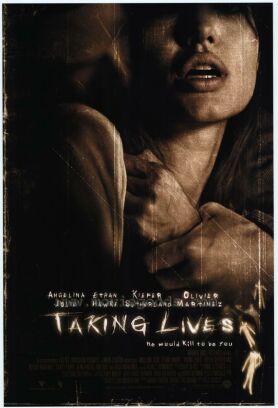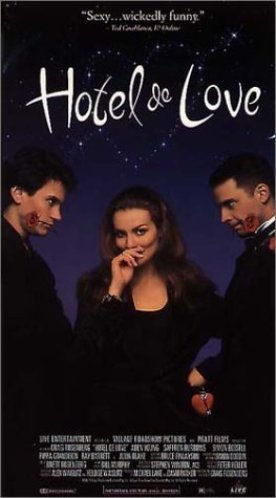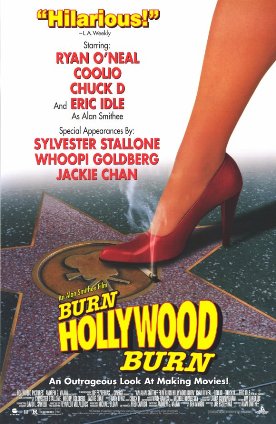Ideal Husband, An
I hope it will not sound too relativistic of me to say that each age has its
own moral needs. In the late Victorian era people needed to
hear—though not nearly so much as they
might have needed to hear a few years earlier or
later—that mercy and forgiveness and
forbearance to sinners was holy and virtuous. This is the moral necessity in an
age of strict moral codes. “We have
all of us feet of clay,” as Oscar
Wilde says in An Ideal Husband, now brought to the silver screen over a
hundred years later by Oliver Parker, who directed and wrote the screenplay from
Wilde’s ever popular play. But we do
not live in an age of stern
moralism—except, of course, of the
quasi-political kind which has moralized (or demoralized) our attachment to guns
and cigarettes. Rather than needing to be told that we mustn’t be too harsh and
unbending in our judgment of others, we need to be told that, occasionally,
judging others just might be “appropriate.”
Thus it will give a modern audience a strange sensation to see the rigidly
moralistic Lady Gertrude Chilton (Cate Blanchett) admit in front of her husband
and sister-in-law, Mabel (Minnie Driver), and Mabel’s just accepted
fiancé, Lord Goring (Rupert Everett), and Lord Goring’s father, Lord
Caversham (John Wood) that she has lied and to see all the rest of those
present—witty, clever and attractive
people—applauding her. Ah yes! It was
just this public admission of deceit which was wanted to make the good Lady
Gertrude truly good. Now she’s just like the rest of us lying, deceitful
buggers. Well, yes and no. Wilde’s own
well-known moral lapses made him perhaps just a bit too eager to celebrate what
was almost but not quite a Clintonian
confession—that is, one which is its
own absolution and which is something rather to be proud of than ashamed of.
The story, for those who may not know it, has to do with an attempt at
blackmail by the charming but amoral Laura Cheevley (Julianne Moore), who knows
that the fortune of Lady Chilton’s husband, Sir Robert (Jeremy Northam), was
founded on a bit of insider trading which, if it came to light, would ruin him.
If he does not use his position in the government to recommend officially an
investment which he knows to be unsound but in which Mrs Cheevley holds a lot of
stock, she will publicize his little secret. Will he have the character and the
courage to resist this attempted blackmail, even though he fears worse than his
impending public disgrace the likely eventuality that his wife, to whom he is
devoted (as she is Cate Blanchett we can quite understand why), will never
forgive him.
But as we have seen, Lady Chilton’s stern, unbending moralism must be
qualified in the end by the consciousness that she, even she, has been guilty of
deception. In her case, it is true, the deception is all but inadvertent, while
her husband continues to profit by his. This seems to bother Wilde (or Parker)
not at all and is treated as a youthful indiscretion for which there is now no
remedy. When (as befits a comedy) a merry wager between Mrs Cheevley and Lord
Goring as to the likely course of action of the upright Sir Robert results in
the latter’s being spared the ruinous revelation, everyone including the lying
and newly chastened Lady Chilton is quite happy to let this sleeping dog lie
too.
True, Wilde is also hinting that Lady Chilton’s attachment to her husband and
the life he has been able to provide for her is far more important to her than
even she quite realizes. But he is also telling us that this is OK and no more
than any of us would do in her place. That Sir Robert should continue to impose
upon the public, even in the highest office in the land, seems self-evidently
OK, so long as he can get away with it. Come to think of it, Wilde’s play so
charmingly cast and photographed and performed as this version of it undoubtedly
is really is a play for our Clintonian times.
Discover more from James Bowman
Subscribe to get the latest posts to your email.







